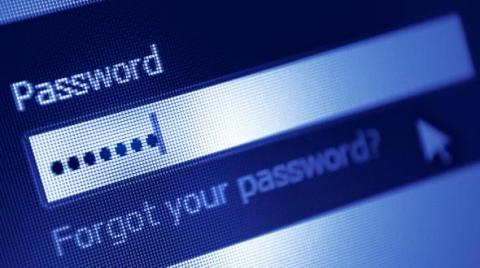We're all looking for quick fixes these days so that we can implement them and get on with our lives, and security is no different. So here are three quick moves you can make right now to dramatically improve your security. And guess what? Not one of them involves passwords.
Multi-factor authentication
If changing passwords is like the eating your veggies of the security world, multi-factor authentication (MFA) is more like eating fresh fruits. Calorie-for-calorie, strong passwords offer a little more punch, but MFA goes down easy and also offers lots of sweet security nutritional value, as well. And since MFA already requires an established password, you're already halfway there. Simply choose something you know (secret question or PIN, for example), something you have (receiving an SMS verification on your cell phone, for example), or something you are (biometric authentication such as Apple's Touch ID, for example).
Depending upon the login you want to secure, you might not have all of these choices, but rest assured, any form of MFA greatly increases your security profile by blocking 99.9% of modern automated cyber-attacks, 96% of bulk phishing attempts and 76% of targeted attacks. There's a good reason why MFA usage jumped from 28% in 2017 to 78% by 2021; it works well.
Software updates
So maybe you've already implemented MFA long ago and want to take additional steps. You can take this next security step while you check your email. Simply check for and apply the latest security patch for your current operating system. This might sound like a weak suggestion, but trust me, at least a few of you reading this will be surprised to learn that you have a few security updates waiting for your approval.
In fact, a few months back, Apple rolled out a crucial security patch for every iPhone, iPad, and Mac out there. Why all the urgency, you may ask? Among other bugs, this patch actually addressed a serious Zero-Day security flaw! This means that Apple had just learned about the vulnerability, but some hackers already knew about it long ago. If we think of hacking as a foot race, these hackers were already off running while Apple is still registering to enter the competition.
In the security game, every second counts, so if you see that your PC or device has a pending security update, stop reading this and go update. We'll still be here when you get back.
Encryption
You're probably already encrypting your files even if you do not know it. All data sent via Apple's iMessage is end-to-end encrypted, as well as everything sent and received through WhatsApp Messenger. Many other communication platforms have also migrated to end-to-end encryption as the default, too. This simply means that even if a hacker, cybercriminal, or even the government were to somehow intercept your private messages to or from another individual, they still couldn't understand the data they just exfiltrated.
What about your OS? Operating systems don't typically encrypt all data by default, so if a cyber thief were to get past your initial line of defenses (biometrics, passwords, etc.), they could copy all your data to their own device and have their way with it at their leisure. Follow these guide links to encrypt a file, folder, or an entire device in Windows or MacOS using File Vault. And if they ask for a password to complete encryption, be sure to write it down in a safe place, because retrieving a forgotten password is much more work than any suggestion I've outlined today.





